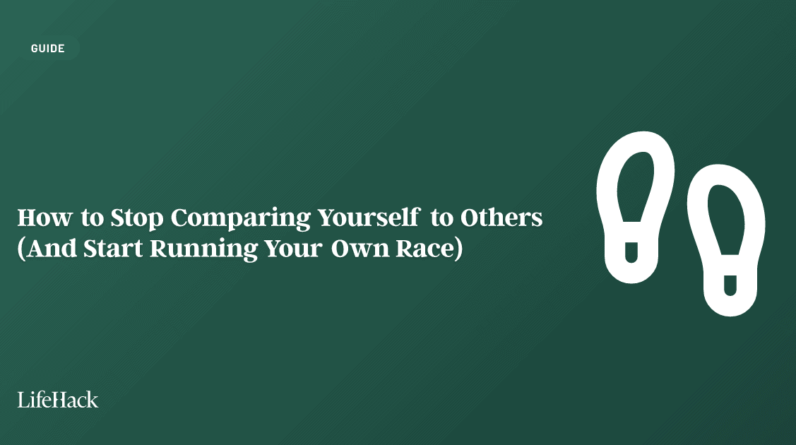
Watch any feel-good movie, and that nice main character is going to get dumped on at some stage in the movie. Their boss might be straight out of The Devil wears Prada, or their brother is the equivalent of Scar trying to take down the king of the jungle, but the point is that being nice gets you in trouble.
Being nice is something we’re taught from birth. When you’re three, you’ve not grasped that barging someone out of the way for the red trike is considered impolite so an adult says “play nice,” and we learn that it’s a good thing.
But fast forward 20 years and suddenly, being too nice can get you in trouble. It can even stop you from earning a good salary, finding true love, or inventing something you believe in.
Ever ended up doing something you didn’t want to?
Chances are you did it because you didn’t want to let someone down, were worried about what people would think, or because it seemed easier.
Maybe you wanted to look like a team player, didn’t have the confidence to say “that looks dangerous, stupid, or way out of my comfort zone,” or were desperately in love with them but hadn’t plucked up the courage to say what you felt. Or maybe you wanted to be liked/loved/appreciated or were Marty McFly and hadn’t learned that just because someone calls you a chicken, it doesn’t make you one.
What’s Wrong With Being Too Nice?
What’s wrong with being nice? There are many reasons why we’re nice and most of the time, it’s a great thing to be. But did you know that nice people are more likely to earn less money?
Did you know that being nice can make you more stressed, less likely to get promoted, more likely to suffer burnout, mentally and physically ill, and even impact your ability to get your to-do list done?
I’m sharing three examples that you may recognize. For each, I’ll help you spot the signs that being too nice is a problem, what to do, and examples of what being less nice could do for your health, happiness, success, and salary.
A study by Charlice Hurst, Beth Livingston, and Timothy Judge took 9,000 people who entered the labor force in the past decade and interviewed them about their careers, giving personality tests that were then measured against income data.
The news isn’t great and even worse for women. Regardless of their levels of agreeableness, women earned nearly 14% less than men. Agreeable men earned an average of $7,000 (£4,490) less than their disagreeable peers.
So, do you need to be a scumbag to do well at work?
The good news is that you don’t need to ditch the niceness. You just need to control it and understand how it impacts your performance and the way people perceive you.
1. No Promotion Here
For instance, a client who had worked hard in their career never got considered for a promotion. New roles would come up, and their name was never in the mix. They said that despite managing a team of 15, they still weren’t considered board room material or able to advance their career.
One task I set them to do was to ask their team what they thought of them. (It’s not easy for any of us, and it’s even harder when you’re worried about what people will say or think about you.)
They discovered they were lovely, really lovely. Nothing was too much trouble. Their door was always open, they always made time for others, and they could whip up a cake for any occasion and be a shoulder to cry on no matter how busy they were.
So, what was wrong with that?
The downside of this was that they weren’t seen as aggressive enough. They weren’t hungry enough to forward their career as they seemed happy and content, and this made them seem like the wrong person for the job.
Being confronted with so much niceness didn’t make my client feel so good. When I pushed them on how they felt, it was hard for them to get angry but that was how they were feeling.
So, we set the goal to be seen as leadership material.
First, we explored who they thought was “badass” (their words not mine!) and what made them badass. They said these people were dynamic, didn’t take “no” for an answer, could overcome anything, and people liked them even when they were handing out unwelcome news or jobs.
They looked at their mannerisms, communication style, management style, etc., and worked on adding these to their style.
You might say, “copycat!” But it’s important to remember that you don’t walk into the office and shout, “Today, I’m going to act like my boss because I want their job!” This is an internal plan. No one needs to know.
Second, they looked at people they admired who had what they wanted in life. They loved sports and could name sports stars who were uber-fit, highly disciplined, and never quit.
Within weeks, that client had added goals and actions to their life that meant they were naturally choosing to exercise three times a week (often more) because of the way it made them feel. It made them feel invincible and like they could do anything. Good actions and results in one area of your life can lead to impressive results in other areas, too.
This person is now responsible for three more teams, introducing a new initiative for the company (something the business had never considered before my client mentioned their ideas), and is on the way to the board.
2. Collaborator Does Not Mean Yes-Man (or -Woman)
Sometimes, getting what you want in life feels impossible. When I hear sayings like “it is what it is” and “I can’t do anything about it,” then I know we’ve found things that are obstacles for that person.
Coaching is a way of getting the chance to say things that are in your head but you’ve never felt you could. We, humans, want to be liked. We don’t naturally choose a life of isolation—you only need to look to the pandemic to see that.
So, we often keep quiet on something to “keep the peace.” If you worry that you are being too nice and not getting what you want, remember that you don’t need to start kicking puppies or shouting abuse in the street.
But you do need to remember to do the following:
- Put yourself on the importance list.
- Communicate what you want.
- Set boundaries.
- Learn that the word “No” is your friend.
- Plan what you want and go for it.
If you find that you can’t easily speak up, reframe the way you see the world. Ask yourself, “If I don’t speak up, what am I agreeing to? What does this mean for other people I work/live with who struggle with this, too?”
Feeling a high level of pain around leaving things as they are will often lead to changing them.
For this team, the first thing we did was try to feel the pain of what being too nice all the time was doing for everyone. One person admitted that they did the same at home and felt like the family’s servant.
This team agreed that Monday meetings were pointless. We introduced an anonymous suggestion box, banning emails on a Friday (It’s amazing how few emails get sent if you know you can’t dump a job on someone else’s for the weekend!), and changed the host of each meeting so that everyone got to chair a meeting. This led to many innovative ideas, and the family servant felt the pain and communicated differently, too.
If you want to drop the yes-man or -woman act, learn how you like to communicate. You don’t need to be evil to be the right level of nice. Learn how you like to communicate and honor that, ensuring that you don’t let your concerns about being liked overrule your actions.
As a parent, pet owner, or boss, you have to make decisions that aren’t popular but keep people safe. It’s not something you enjoy, but you do that because you love and care. Remember that when you are people-pleasing.
3. Everything Is Perfect
It can be hard to spot truth from fiction. In this world of perfectionism, be on the side of being real and honest.
Do you know someone who has the perfect life? Perfect hair, perfect home, perfect job, perfect relationships, etc.?
Here’s the truth: no one’s life is perfect.
It’s important to remember that everyone needs to use a bathroom, everyone needs food and water, and everyone has a heart and a brain. Remembering our sameness rather than our differences can be a natural leveler before our mind starts racing with “My life isn’t like theirs!”
Those acting perfect are often struggling, saying things like, “I can’t let people see this mess.”, “I’d never go out like that!”, “Oh, it’s alright. I don’t need a lot of sleep.”
These are often the hardest to help because they don’t want to accept the situation. Having exceedingly high standards and meeting everyone’s expectations leaves the individual exhausted, unwell (physically and or mentally), overwhelmed, and often feeling unloved. Worse if you know someone like this, they’re likely to dismiss you and tell you that it’s you who’s got the issue!
If this is you, learn that setting very high standards can hurt your loved ones and colleagues.
I worked with a young parent who was trying to do everything for everyone, making them suffer. They didn’t have time for their own pursuits in life, and to say they felt drained was an understatement.
“If you won’t do it for yourself,” I said, “Will you do this for your children?” They looked at me puzzled so I added, “Do you expect them to be perfect? To get to adulthood and quit everything they enjoy in the pursuit of perfection for everyone else?”
It’s not always easy to change, so don’t dismiss the value of the chemicals your brain creates through simple actions. Happy chemicals can be tapped into when you need to override negative thoughts and take new action.
Below are some examples:
- Dopamine– rewarding yourself for a job well done, ticking things off the to-do list, achieving something, helping others, food
- Serotonin – exercise, good sleep, sun, massage, build your self-confidence
- Endorphins – laughter, essential oils, dark chocolate, sex
- Oxytocin – self-love, love for others, and dog hugs
This parent became clear on what they wanted. If you do not communicate your needs, how will people know you have them?
They then ringfenced their time—they didn’t just communicate what they wanted, but they also put the right boundaries in to ensure they got it. And lastly, they altered their attitude to the word bossy:
- “Is it bossy I asked? Or is it assertive?”
- “Is it selfishness? Or is it self-preservation?”
Learning how to express themselves with confidence and not expecting to be ignored or overridden meant they stuck to their goals and achieved them.
What connection do you put on words? Does it empower you or hold you back?
Final Thoughts
Put yourself on the importance list. Communicate what you want. Set boundaries, and learn that the word “No” is your friend. Plan what you want, and go for it.
Being a bit less nice doesn’t mean you are turning evil. It’s just a way of honoring yourself, too.







